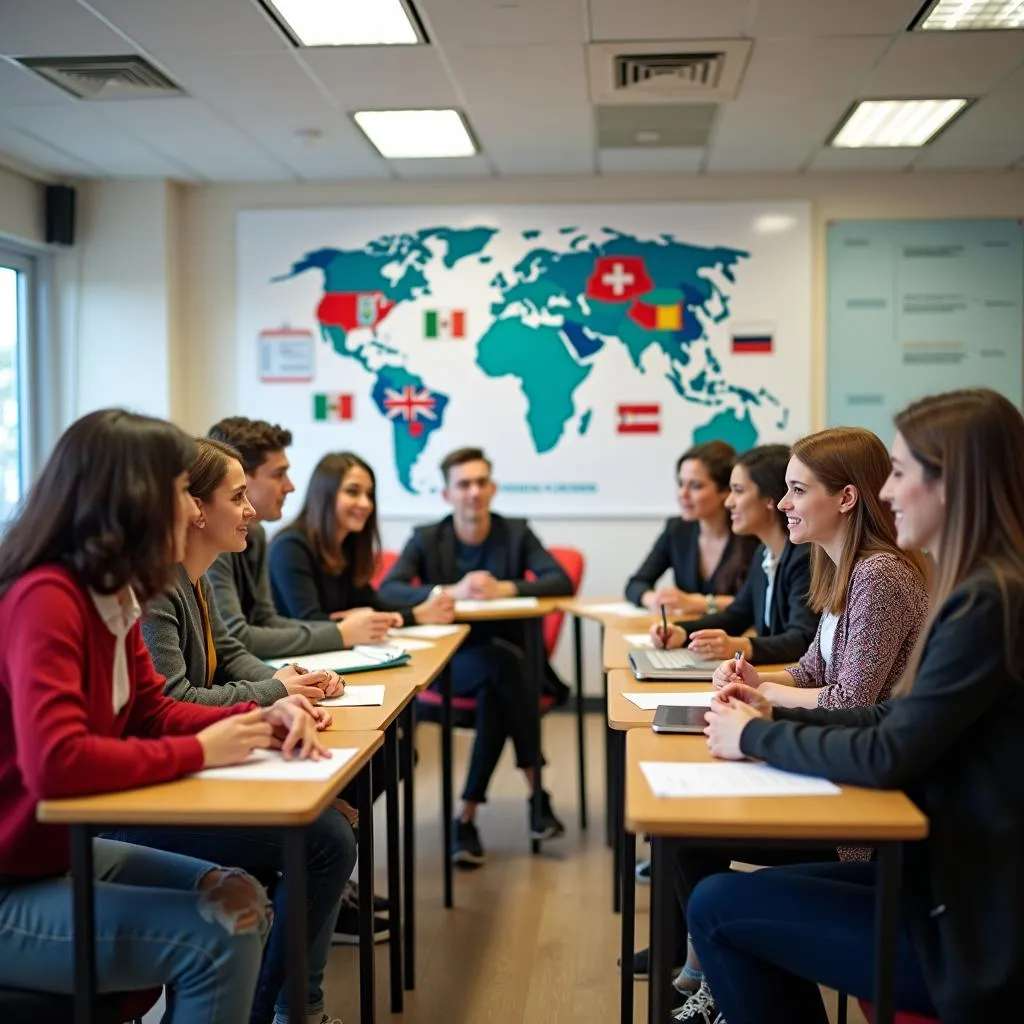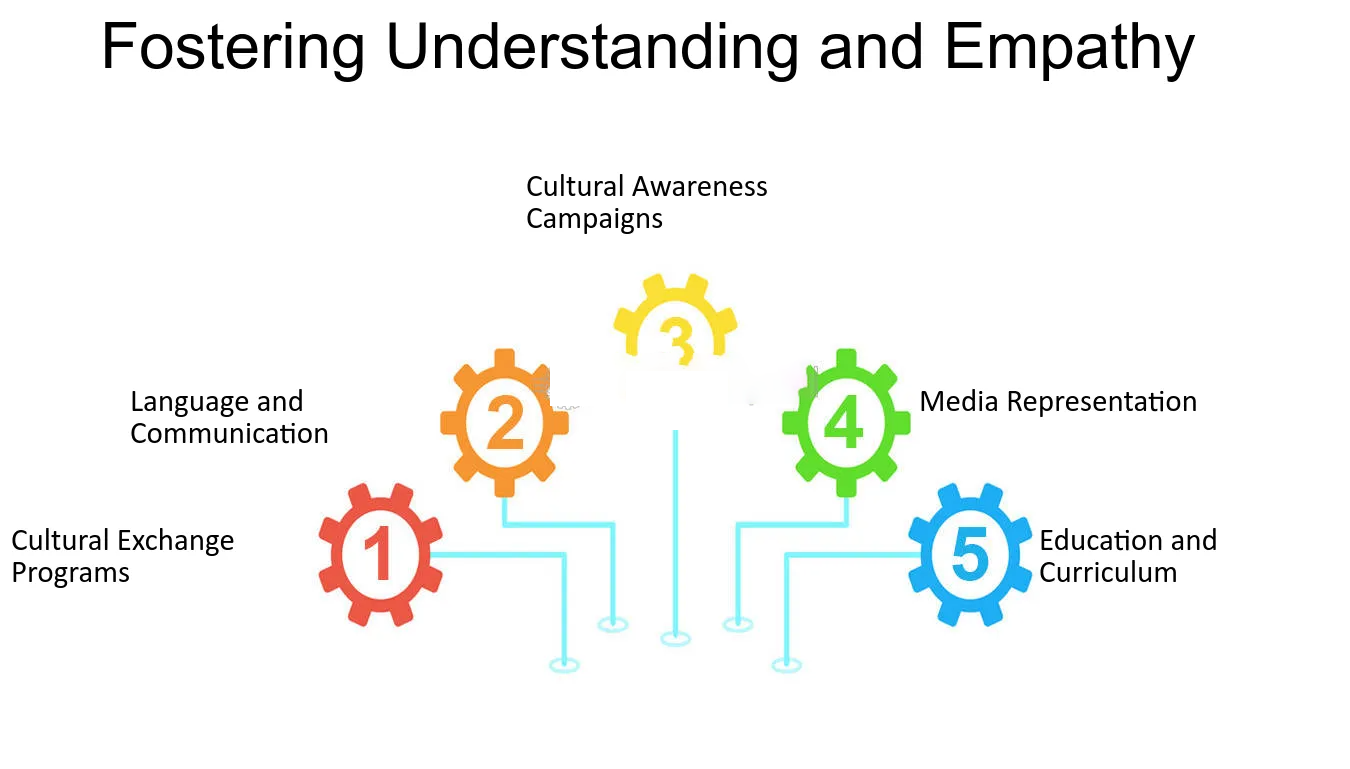A global citizen feels they belong to a new emergent world community whose actions contribute towards the values and practices of that new world. Global citizens are acutely conscious of the wider world, are attuned to the idea of their role as world citizens, respectful and valuing of diversity, and willing to act to make the world a more equitable and sustainable place.
Globalization has revolutionized the living style, working style, and interaction style of the human population. Growingly, the world is becoming a global village, and there is an increased notion of global citizenship. Global citizenship refers to the sense of belonging to a larger and broader global community. It involves recognition, understanding, and respect for diverse cultures. It also carries a responsibility toward mitigating global problems. International education goes along the lines of promoting global citizenship because it puts people in possession of knowledge, skills, and experiences to become active and responsible global citizens.
Promotes Global Citizenship
International education fundamentally promotes the practice of global citizenship through encounters with diverse cultures. The exposure to foreign cultures comes from various study abroad programs or encounters with international students through cultural traditions and different worldviews, all encouraging cultural openness and appreciation. One learns to see the richness of human diversity and embrace it as an asset rather than a difference to fear.

Fostering Empathy and Understanding
International education stands to be the backbone for all aspects of it because it indeed renders a world citizen empathetic. International education lets one walk in others' shoes, and as a result of firsthand experience, it leaves one with a real understanding of the challenges and opportunities that face others across the globe. Global citizens are motivated through empathy to take action towards alleviating suffering and promoting social justice.

Global Perspective
International education also offers a global view. It evokes thoughts about climate change, poverty, and social inequality. All these are issues that create a global perspective with better knowledge of the importance of connections between countries for solutions to such problems.
- Broadening Cultural Awareness: Immersion in foreign cultures enables students to develop empathy, tolerance, and appreciation for diverse customs, traditions, and values.
- Enhancing Language Skills: Language proficiency is critical for effective communication and cultural understanding.
- Fostering Global Perspectives: Exposure to international viewpoints and experiences encourages students to think critically about global issues and challenges.
- Promoting Community Engagement: Participation in volunteer work, internships, and community projects abroad encourages students to contribute to global social causes.
- Developing Cultural Competence: Students learn to navigate complex cultural dynamics, preparing them to address social issues in diverse contexts.
- Encouraging Active Citizenship: Study abroad experiences inspire students to become engaged global citizens, advocating for positive change.
Development of Global Citizenship Through Study Abroad Participation
Development of global citizenship is another among many desired outcomes of interest in study abroad research (e.g., Lutterman-Aguilar & Gingerich, 2002; Tarrant et al., 2014). However, it has been conceptualized in various ways with different constitutive attributes and emphases (Deardorff, 2009). There are several authors on international education (Morais & Ogden, 2011; Van Gent et al., 2013; Cho, 2017; Moon 2013) who suggest that the set of desired outcomes that refer to global citizenship development falls into three theoretical dimensions. Namely, they are social responsibility, global competence, and global civic engagement.
Social Responsibility
The social responsibility dimension refers to a sense of interdependence and social concern to others and to society and the environment. Along this dimension are found such attributes as respect for diverse perspectives, the ability to evaluate social issues and identify instances of global injustice and disparity, and one's capacity for understanding the interconnectedness between local behaviors and their global consequences (e.g., Braskamp et al., 2009; Lagos, 2001). Global competence requires that an individual be open-minded and possess the skills or knowledge to effectively operate in intercultural interactions (for example, Deardorff, 2006).
| Category | Benefits | Outcomes |
| Global Citizenship | Cultural immersion, language skills, global perspectives | Empathy, tolerance, cultural competence |
| Social Responsibility | Community engagement, volunteer work, internships | Active citizenship, social awareness, community involvement |
| Personal Growth | Self-awareness, independence, confidence | Lifelong learning, adaptability, resilience |
| Career Opportunities | International experience, cultural competency | Enhanced employability, global networking |
| Academic Enhancement | Interdisciplinary approaches, global issues | Holistic understanding, critical thinking |
- 75% of alumni of study abroad report increased cultural competency Source: Institute of International Education
- 90% of employers value international experience in job candidates. Source: Ernst & Young
- 80% of students who have an experience abroad volunteer or engage in community service.
- Cultural Curiosity: Students learn to enjoy diversity and difference through knowledge of the unknown.
- Personal Growth: While being learned to survive in a new environment, their strengths emerge, and developing resilience, students get stronger.
- Global Connections: Lifelong friendships and professional networks will also reach across cultures.
- Gain New Perspectives: As exposure to international views lends a greater understanding of global issues.
- Develop Cultural Competence: Students will be able to understand the intricate cultural dynamics and resolve problems in a social context.
- Discover Social Responsibility: The student will recognize their responsibility toward helping society change for the better through engagement with communities on campus.
- Career Advancement Opportunities: Employers admire graduates who have had international experience and are culturally competent.
- Community Involvement: Alumni continue serving in the world for social causes, inspiring others .
- Personal Growth: Students return home feeling empowered, knowing that they can make a difference.
- Scholarships and Grants: Aid students from all walks of life.
- Inclusive Programs: Reach out to students with disabilities, language barriers, or financial constraints.
- Virtual Exchanges: Alternative platforms for global engagement.
Empowering a Global Community
Moving beyond pure academia, international study programs give the feeling of belonging to a global community in embracing cultural diversity, ensuring students are encouraged to get involved in their community and to act responsibly as citizens to turn out informed, active, and compassionate citizens.

Aqsa Ahsan








.gif)


































